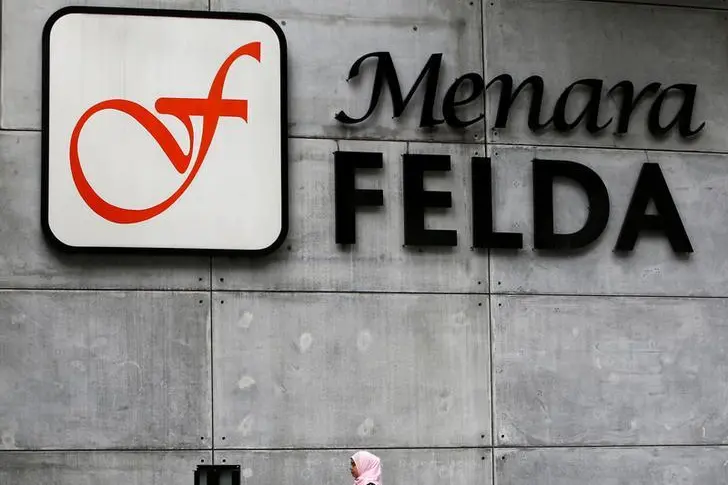PHOTO
KUALA LUMPUR - Malaysia will inject 6.23 billion ringgit ($1.52 billion) of financial aid into state-owned palm oil plantation agency Felda, after a government inquiry found poor management had sent the company's losses and debt soaring over the past decade.
Tabling a report in parliament on Wednesday, Economic Affairs Minister Azmin Ali cited mismanagement and bad investments for Felda's troubles, and accused former prime minister Najib Razak of using the agency for political purposes.
Azmin said Felda will also exercise an option to walk back a $500 million purchase of a stake in Indonesian palm oil firm PT Eagle High Plantations, a deal made during Najib's premiership that was criticised as being too expensive.
The report follows a probe ordered by the government of Mahathir Mohamad, which came to power last year after defeating Malaysia's longtime ruling coalition and which had vowed to look into Felda's financial troubles and alleged graft.
"This is not just negligence, this is a crime that led to the loss of billions of public funds," Azmin said of the report's findings.
The report said Felda's total liabilities had risen 12-fold over 10 years to 14.4 billion ringgit in 2017. Its cash balance plunged from an average of 2.5 billion ringgit in the period between 2007 to 2011, to just 35 million ringgit as of May 2018.
"This cash flow restriction means that Felda has been unable to cover operating costs, replanting costs, or provide assistance and loans to settlers," Azmin said.
The minister said Najib's administration spent 2.7 billion ringgit of Felda's funds on garnering political support during general elections.
A spokesman for Najib, who is on trial over separate corruption charges, did not respond to a request for comment on the allegation.
Azmin said in parliament that Najib had asked Felda to purchase a stake in Eagle High Plantations from Indonesian businessman Peter Sondakh.
Earlier this year, Felda chose to exercise a put option to sell its stake back to Sondakh for the same purchase price plus interest, Azmin said.
Eagle High has decided to contest Felda's decision in arbitration, he told reporters in parliament.
Eagle High did not immediately respond to a request for comment.
In a Facebook post on Wednesday, Najib defended the purchase, saying that the investment would have been more profitable if palm oil prices were higher last year.
RESTRUCTURE DEBT
Felda, or the Federal Land Development Authority, was created by Malaysia's second prime minister in 1956, and aimed to resettle and employ the rural poor in the palm oil industry. It grew to become the world's largest state-run palm oil agency.
Its problems, however, have frustrated Malaysia's 650,000 palm oil farmers, also known as settlers, as they have racked up debt on low incomes.
FGV Holdings Bhd, a unit of Felda and the world's largest crude palm oil producer, was listed in 2012.
Some of the funds from the listing that went to Felda were spent on "suspicious investments involving shady transactions", Azmin said.
According to the government report, Felda would also restructure the principal payment of its debts, as well as delay the repayment of its borrowings of 1.98 billion ringgit in 2019.
The remainder of its 9.3 billion ringgit borrowings will be repaid from 2020 to 2028.
The government reiterated on Wednesday that non-strategic assets would be sold.
(Reporting by Emily Chow and Joseph Sipalan; writing by Rozanna Latiff; editing by A. Ananthalakshmi and Richard Pullin) ((emily.chow@thomsonreuters.com; +603-2333 8035; Reuters Messaging: emily.chow.thomsonreuters.com@reuters.net))





















